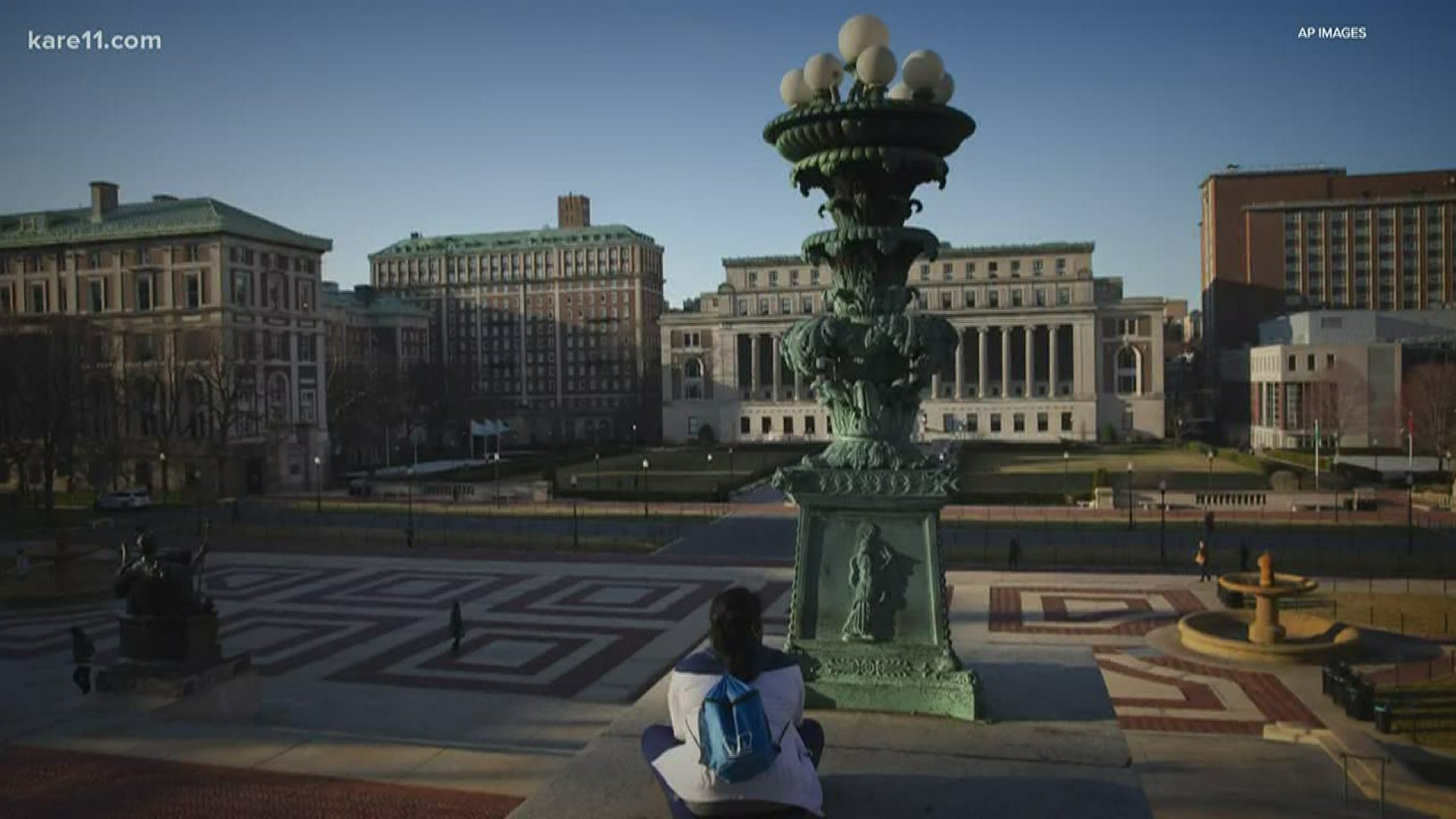MINNEAPOLIS — In the thick of this COVID-19 pandemic, Meredith Kol-Balfour’s college decision came down to the final day.
Stressful? That might be an understatement. The Southwest High School senior weighed multiple options, even considering some institutions in less populated areas that might have a better chance of holding in-person classes in the fall.
In the end, though, Kol-Balfour had to follow her heart.
“There’s something about New York,” she said, “that I’ve always been drawn to.”
Kol-Balfour accepted enrollment at prestigious Barnard College, where she plans to pursue an undergraduate degree in economics and then a master’s degree from Columbia University through the “4+1 Pathways” partnership program.
She placed her deposit on April 30, just one day before the May 1 deadline for high school seniors – knowing full well that in-person classes on a New York City college campus are unlikely for the fall semester.
“There’s a whole lot going on there right now, which was another big decision I had to make,” Kol-Balfour said. “Ultimately, Barnard won me over.”
Kol-Balfour’s college career might begin in unorthodox fashion: from the comfort of her own home in the Twin Cities until Barnard’s campus safely re-opens in New York City. Many other high school seniors in the Class of 2020 are preparing for the same fate, as colleges across the United States monitor COVID-19 trends to see if large gatherings will be permitted by late August or September.
The University of Minnesota, which has already committed to online learning through the summer semester, has not made any decisions yet about the structure of fall classes. A spokesperson said the school may release more guidance as early as June, when the outlook for the semester becomes clearer. In the meantime, the U of M is working with high school seniors past the May 1 deadline on a case-by-case basis, offering some flexibility in enrollment for 2020.
Some colleges, including the University of Missouri and the University of Tennessee, have already signaled a willingness to hold in-person classes this fall, but those decisions are always subject to change if the situation doesn’t improve or if a second wave hits.
Jenny Buyers, an independent consultant and co-owner of College Connectors in Edina, said it appears some (though not all) students are considering cheaper, in-state options in light of the pandemic.
“Students are trying to understand: if I normally would have paid ‘X’ amount for a college experience, is that the same college experience that I’m going to get if I’m only online, if I’m only remote learning?” Buyers said.
For high school juniors and sophomores, meanwhile, there’s more time for a college decision – but just as much uncertainty.
Payton Crosby, a junior at The Blake School, said she had to cancel her spring break college tours when the COVID-19 pandemic started to close campuses in March. She rescheduled for the summer, but it now appears even that backup option won't be possible.
“It’s definitely been a challenge for scheduling on-campus visits,” Crosby said. “But, colleges have been really accommodating and have set up virtual visits and information sessions.”
The University of Minnesota, for example, has added a lengthy virtual tour video to its admissions YouTube page.
Another impact of COVID-19: ACT and SAT testing. Due to COVID-19 cancellations, some schools have waived the testing requirements entirely for Class of 2021 applicants – including the University of California system.
“They are moving things around as much as possible,” College Connectors co-owner Kate Malczewski said. “There’s so much uncertainty in terms of future test dates, that we’re recommending not to sign up for June or July but wait until the fall when we know more information at that time.”
Malczewski’s colleague, Jenny Buyers, said high school juniors and sophomores should stay involved in their local communities to bolster extracurricular activities – and she said they should focus on the long-term over four years, not merely the short-term impact in 2020 or 2021.
“Eyes on the prize,” Buyers said. “For students whose goal it is to earn a degree, that’s what they’ve got to stay focused on.”
Meredith Kol-Balfour is a shining example of that.
COVID-19 or not, she plans to emerge in five years with degrees from both Barnard College and Columbia University.
“Economics has always been my passion, economics and political science – using statistics to further my social justice agenda,” Kol-Balfour said. “That’s really powerful in New York City.”

